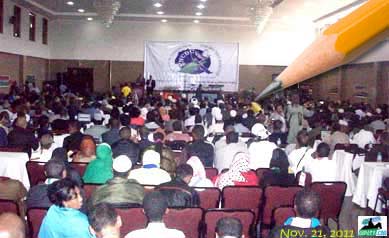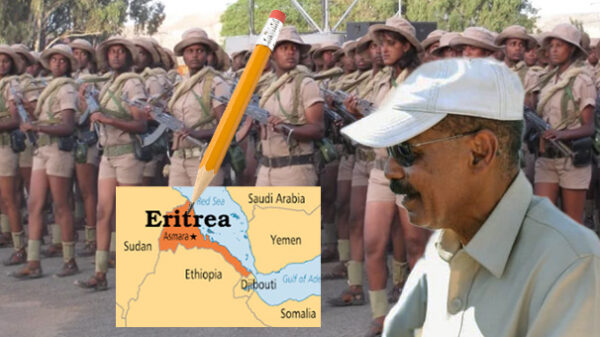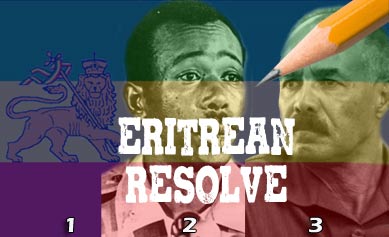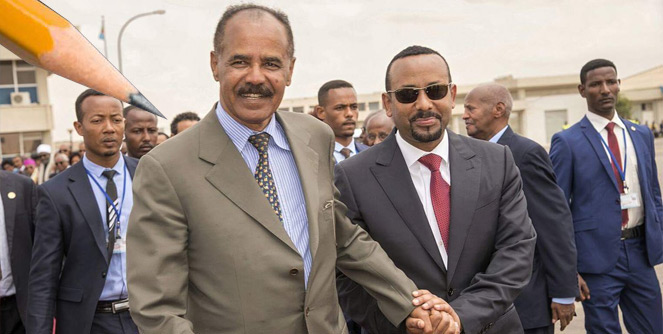Eritrean Resistance Forces Need An Effective Umbrella

After almost a year-long polarization, the National Council (NC) of the Eritrean National Council for Democratic Change (ENCDC) will convene an emergency meeting in Ethiopia from December 15 to 19, 2014.
The NC is composed of 127 members, 19 of whom are not available: some have resigned, some have died and some are unreachable.
On December 1, 2014, The EC issued its final call for all NC members to attend. As of last week, 91 NC members have confirmed that they will attend the emergency meeting.
Background
In 2012, the Executive Committee (EC) of the ENCDC formed five subcommittees to represent it in their respective zones in the Diaspora. Some of the leaders of the zones began to act independently from EC by creating autonomous power bases. Consequently, a conflict was ignited between the EC and the subcommittees resulting in polarization between the leadership of the National Assembly and the Executive Committee.
The ENCDC, which was instituted in November 2011 and has a two-year mandate, has been completely paralyzed for over two years.
In the summer of this year, a preparatory committee (PC) was formed to schedule the second congress of ENCDC. Again, due to differences over technical issues within the ENCDC, it was unable to perform its mandate.
Some argue that the lack of progress is understandable because the ENCDC, a large resistance umbrella movement containing diverse Eritrean political and social groups, is the first of its kind. This comes even from those who rate its performance as appalling. ![]()
Since its formation, the NA has been ravaged by rivalry. Still, many of its members have shown extraordinary commitment in protecting it, seeing it as a unique achievement and a significant milestone in the long struggle for the democratization of Eritrea.
Vocal critics have dismissed the ENCDC.
Regardless of the reasons, it is clear that the ENCDC has failed in providing the leadership expected from it and inadvertently created a vacuum within the Eritrean resistance camp. This, in turn, encouraged the formation of tens of ineffective, but otherwise well-meaning Diaspora based entities.
Obstacles
One of the reasons for ENCDC ineffectiveness is that, immediately after its formation in Hawassa, another group was launched in Debrezeit. The youth who were supposed to be the torch bearers of ENCDC now had a new platform: the “Debrezeit youth conference” which contributed further to the fragmentation of the Eritrean opposition forces.
Exacerbating this was the aforementioned conflict between the Executive Committee and the zonal sub committees.
The ENCDC’s EC offices are based in Ethiopia. This has been the cause of much vilification by rival forces who live in Western countries, mostly scheduling their activities around their vacation and retirement goals, while the Addis Abeba-based opposition are full timers.
Now, with the rank-and-file applying strong pressure, the spokesman of the NC has issued positive and reconciliatory statement confirming he and his team will attend the emergency meeting.
What Next?
The agenda of the preparatory committee is future-oriented. Still, if past performance is an indicator, there is fear that the meeting will devote most of its time to discussing history instead of planning for the future. The facts show that the differences have been discussed exhaustively over the last two years on public media and further bickering is unlikely to resolve the dispute.
The NC would be well-advised to encourage its members to overlook minor differences, rise to the occasion, assume responsibility, and help the ENCDC move forward.
Transitioning to democracy after decades of tyrannical rule is not an easy task, but that is a road the opposition forces have chosen to travel.
Bringing diverse people from different political persuasion and social background is not an easy task; we hope the experience of the past helps those participating to be magnanimous enough to help advance our common goal of salvaging our people and our country. This is a historic opportunity and taking advantage of it could help us redeem ourselves of past mistakes and move on with resolve, commitment and determination to win against the tyranny in Asmara.
Finally, we hope that the NA will consider the following suggestions:
- It’s vital that the second congress is convened no later than the beginning of the summer of 2015. The NC should set a fixed date to hold congress within six-months.
- There are forces outside the ENCDC umbrella and the ENCDC should spare no effort to persuade them to join. It’s a known fact that some of them have reservations; if all sides are appreciative of the seriousness of the situation inside Eritrea, and the state of the resistance, they should be willing to break the ice and join hands.
- The NA should identify political parties and civil association and determine the conditions of joining. Unknown entities should not be allowed to wreak havoc in the struggle as was witnessed in the Hawassa congress where recognition of a group required only a payment of $100 registration fee. Participation should be limited to serious and known entities.
- The task of the PC is serious and it should be manned by competent individuals. Members of the PC who do not see in themselves the skills to carry out the expected duties should be encouraged to withdraw and be replaced by competent persons.
- Start to talk about the management of security and military wings and bring them under a unified command.
- To advance participatory democracy and allow interactive discussions, we strongly urge the ENCDC to have its meetings broadcasted live in the Internet.
Hoping to see the revival of the Eritrean spirit, we appeal to the wisdom of the NC and wish them a truly successful meeting.
Related Reading:
List of names of National Council members elected at Hawassa in 2011




Awate Forum